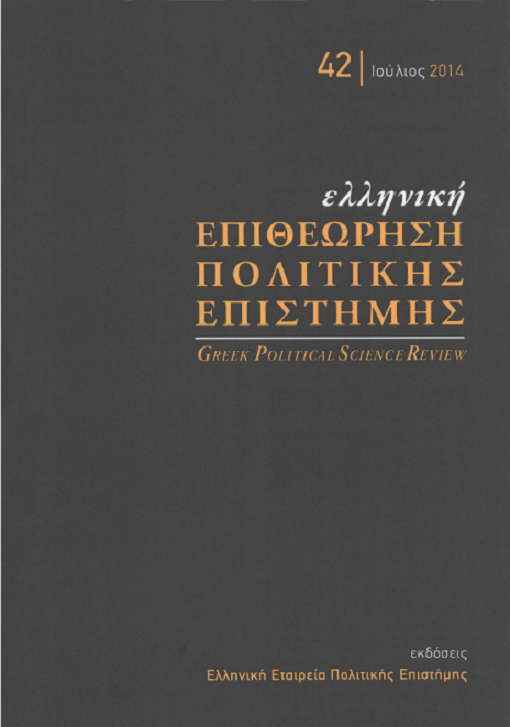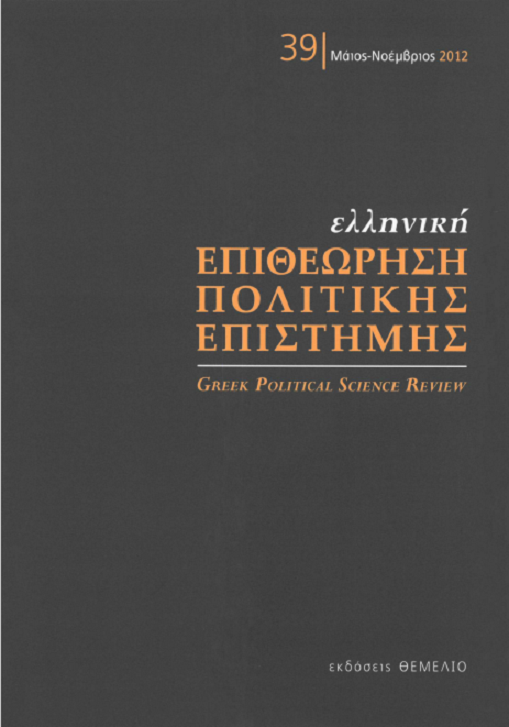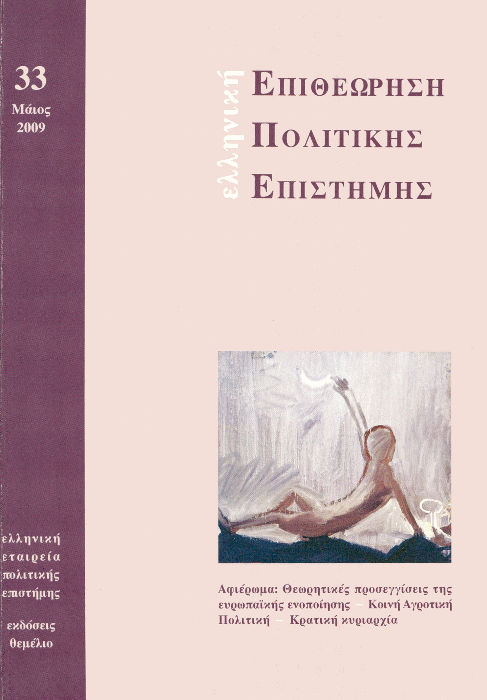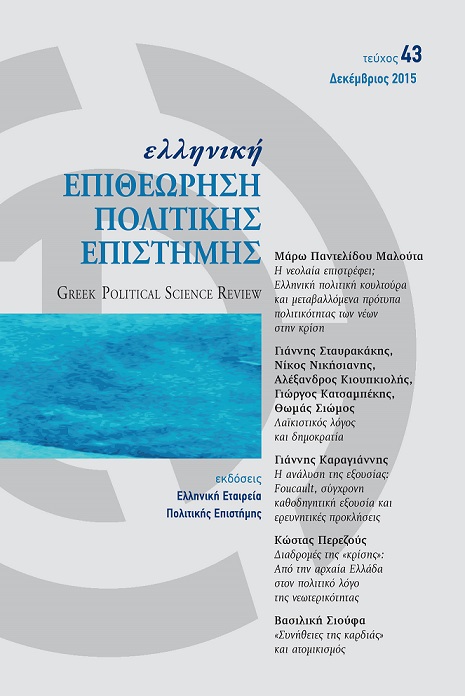Bureaucracy and political parties: An unbalanced relationship

Abstract
There is a disparity in organizational strength between political parties and the state in Greece after the transition to democracy, i.e., from 1974 until the present. Political parties are stronger than the state apparatus on a number of dimensions. The strength of the state is defined in terms of the organizational resources on which political parties and the state can draw. Such resources are the constitutional set-up of the post-authoritarian Greek regime, in terms of the room for reform granted to incoming governments, the legitimacy enjoyed by parties, the technical expertise available to them, and the internal cohesion that party mechanisms have forged under the guidance of contemporary Greek party leaders.
The weakness of the Greek state, evident in the number of administrative reforms, to which it has been subjected in the short post-authoritarian period and in the inroads that successive governing parties have made into the administrative personnel and the malleable bureaucratic structures, can be accounted for by a historical-sociological analysis of party-state relations in Greece since the early nineteenth century. This analysis shows that parties had penetrated the state from its inception, that the governing elites of the previous century were oriented more towards irredentist projects than modernization efforts, that authoritarian regimes in this century de-legitimized the Greek public administration, and that the long periods of majoritarian single party rule over the state stripped the state from any autonomous development of human resources and adequate bureaucratic structures.
Article Details
- How to Cite
-
Σωτηρόπουλος Δ. Α. (2017). Bureaucracy and political parties: An unbalanced relationship. Greek Political Science Review, 2(2), 83–100. https://doi.org/10.12681/hpsa.15316
- Issue
- Vol. 2 (1993)
- Section
- Articles

This work is licensed under a Creative Commons Attribution-NonCommercial-ShareAlike 4.0 International License.
Authors who publish with this journal agree to the following terms:
Authors retain copyright and grant the journal right of first publication with the work simultaneously licensed under a Creative Commons Attribution licence that allows others to share the work with an acknowledgement of the work's authorship and initial publication in this journal.
Authors are able to enter into separate, additional contractual arrangements for the non-exclusive distribution of the journal's published version of the work (e.g. post it to an institutional repository or publish it in a book), with an acknowledgement of its initial publication in this journal.
Authors are permitted and encouraged to post their work online (preferably in institutional repositories or on their website) prior to and during the submission process, as it can lead to productive exchanges, as well as earlier and greater citation of published work (See The Effect of Open Access).










